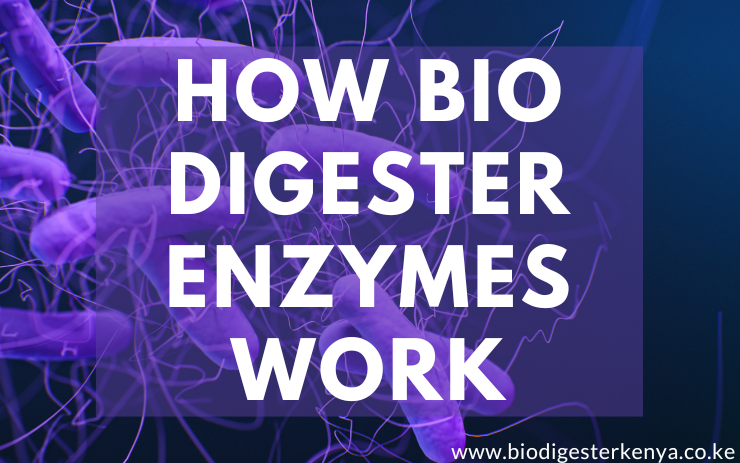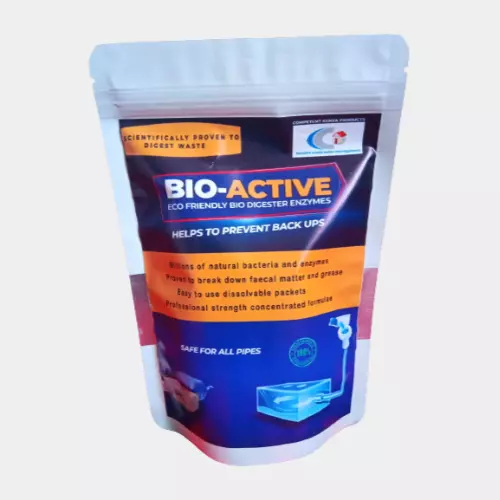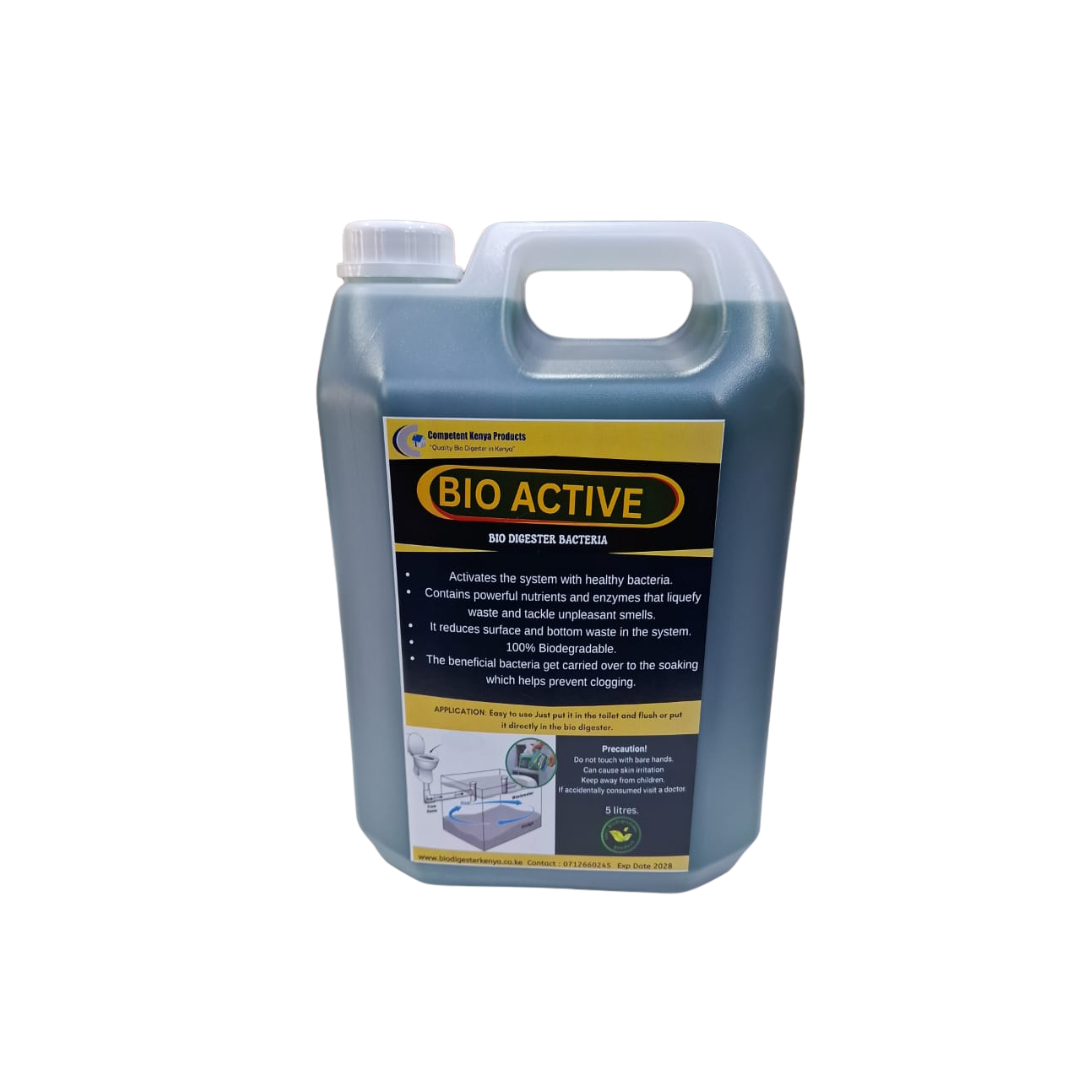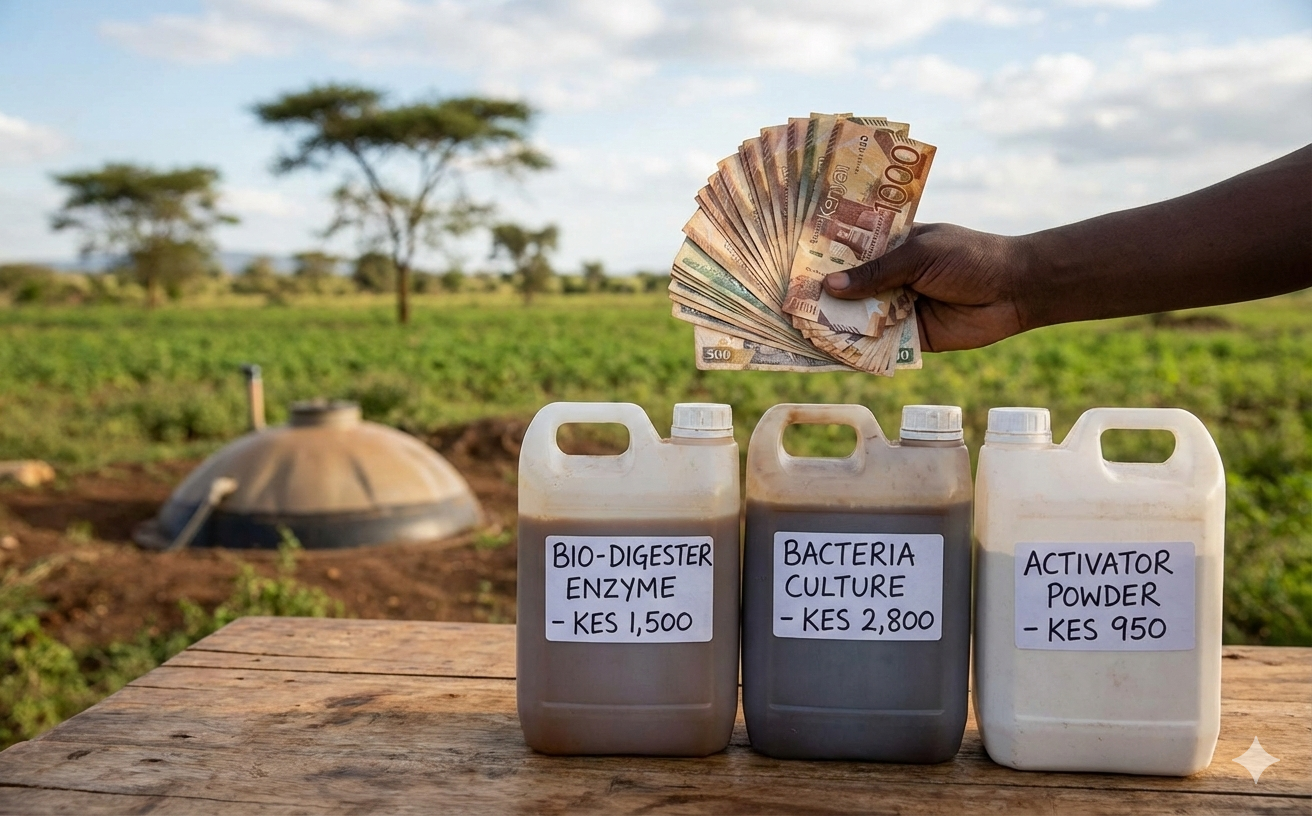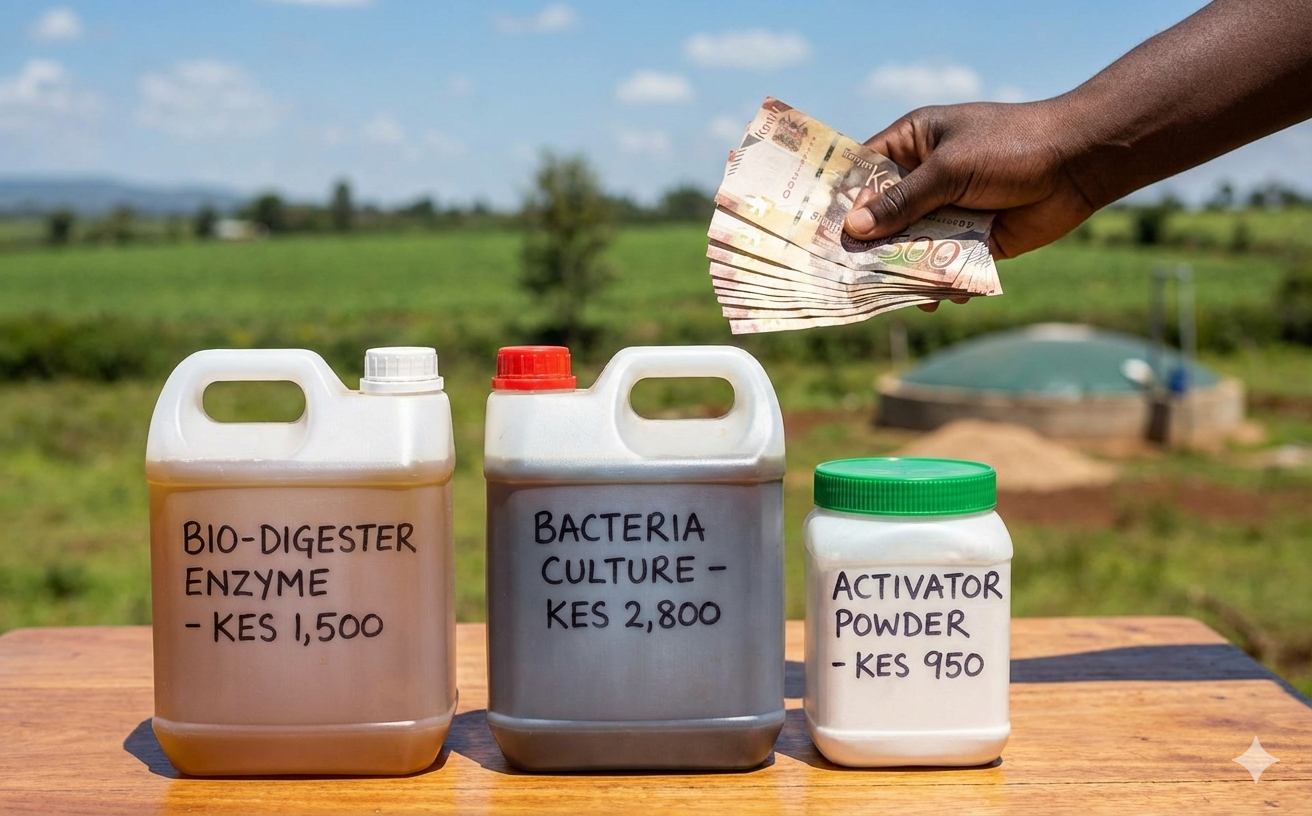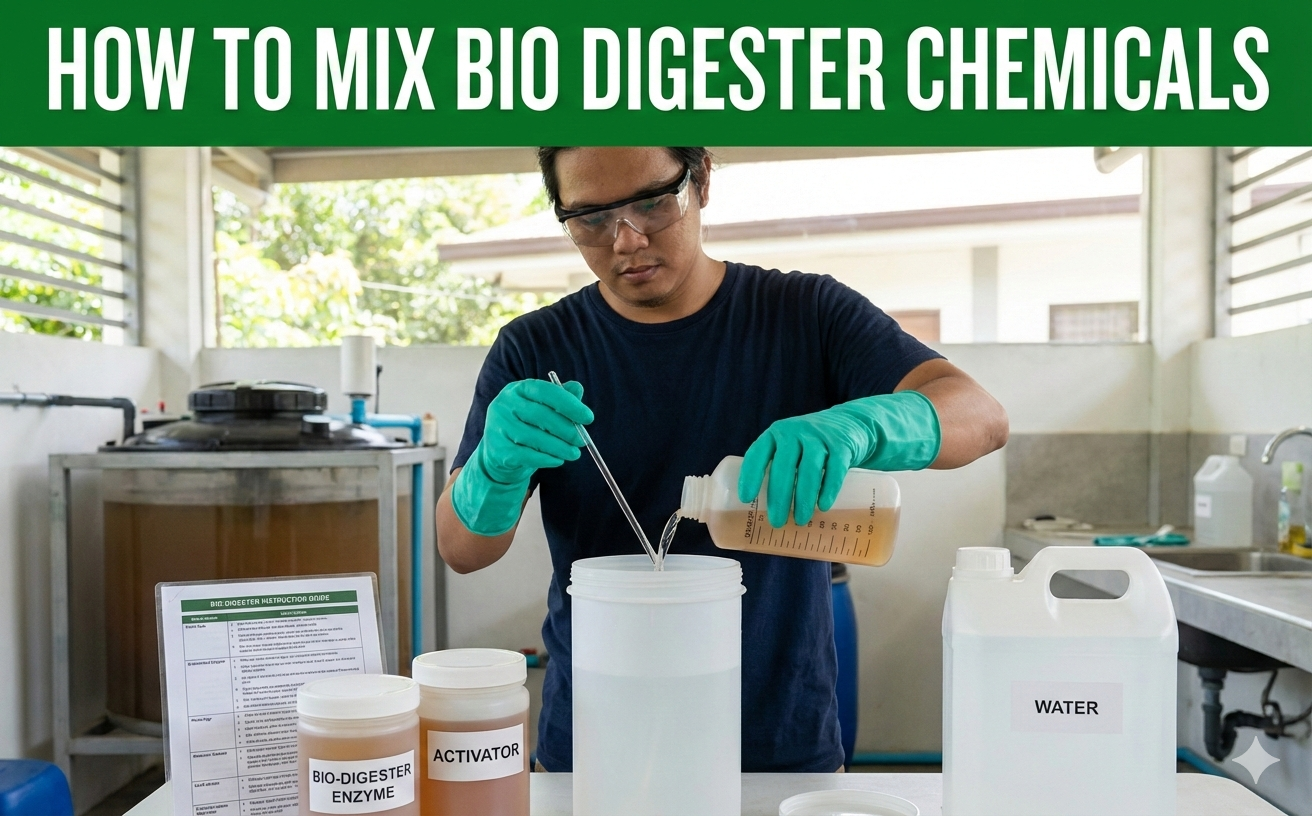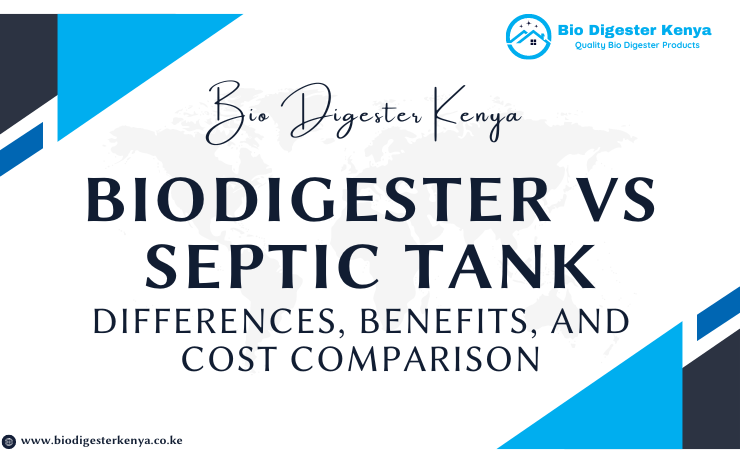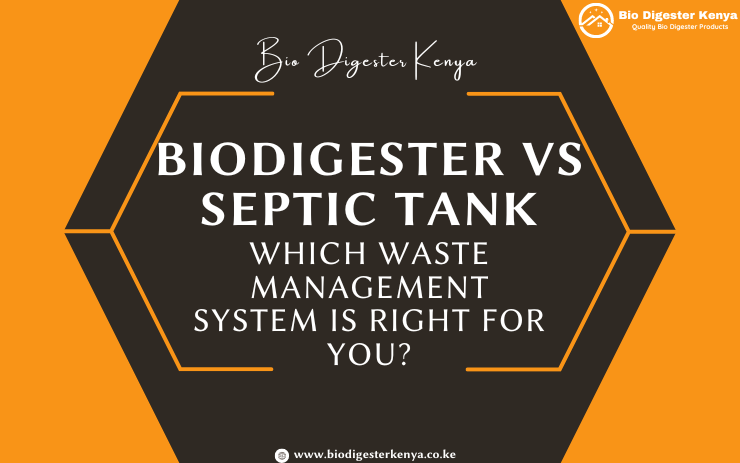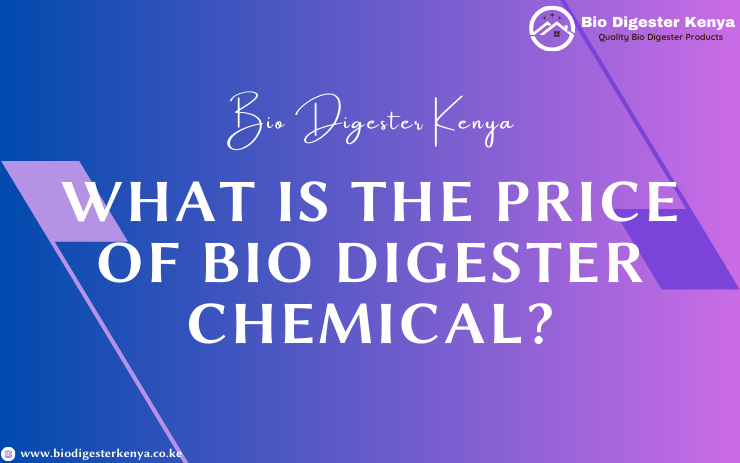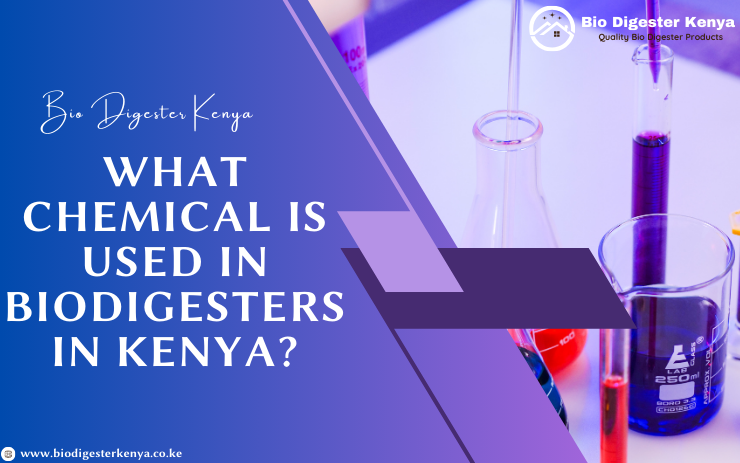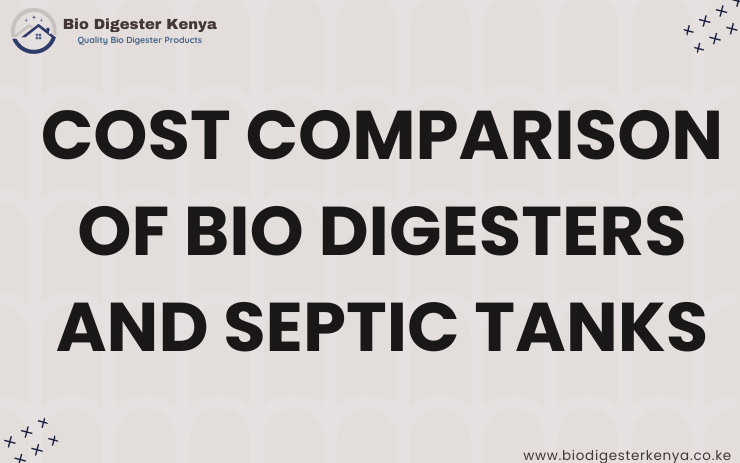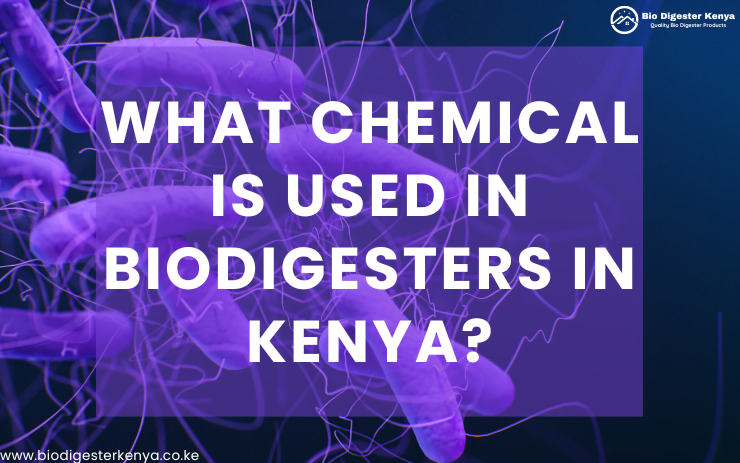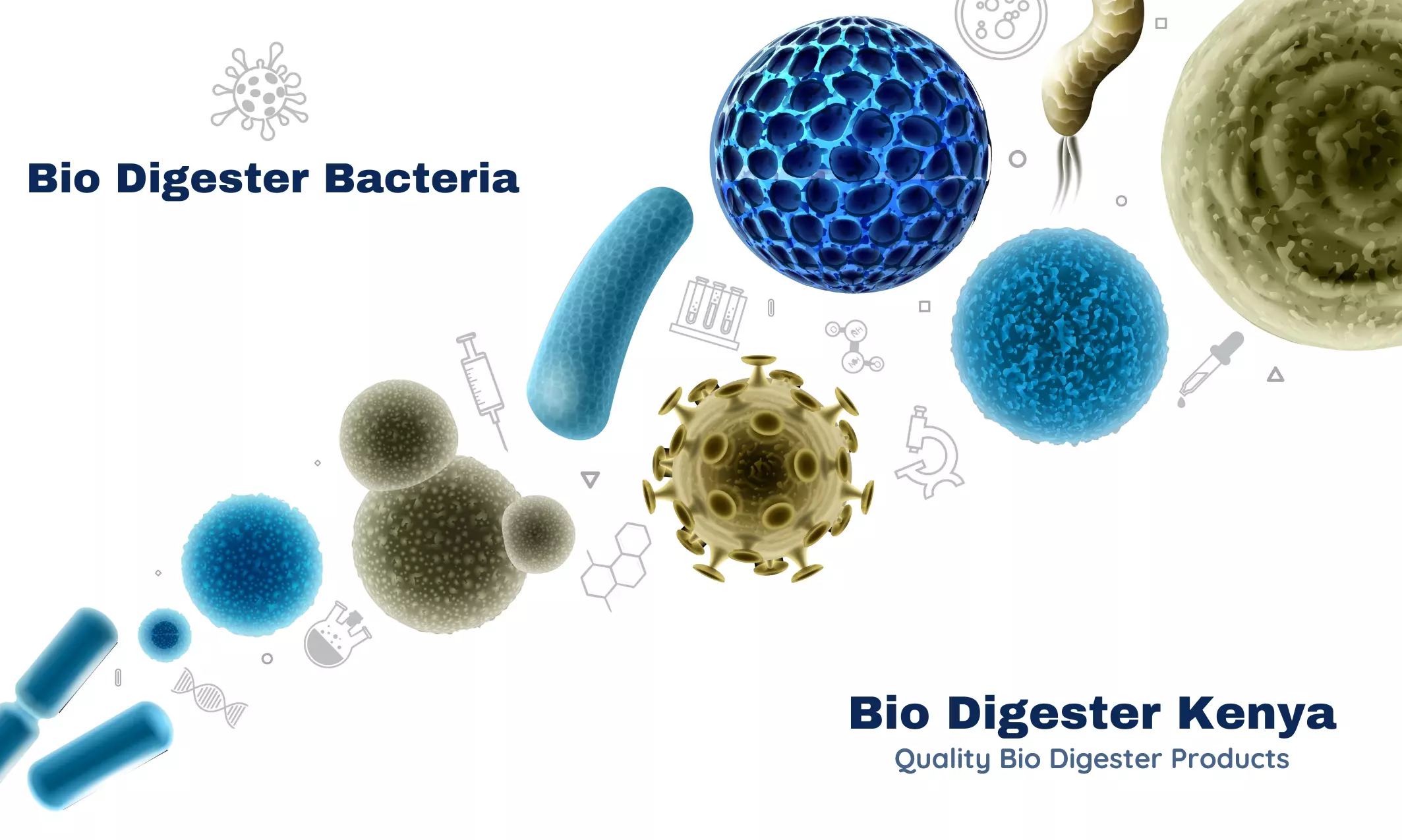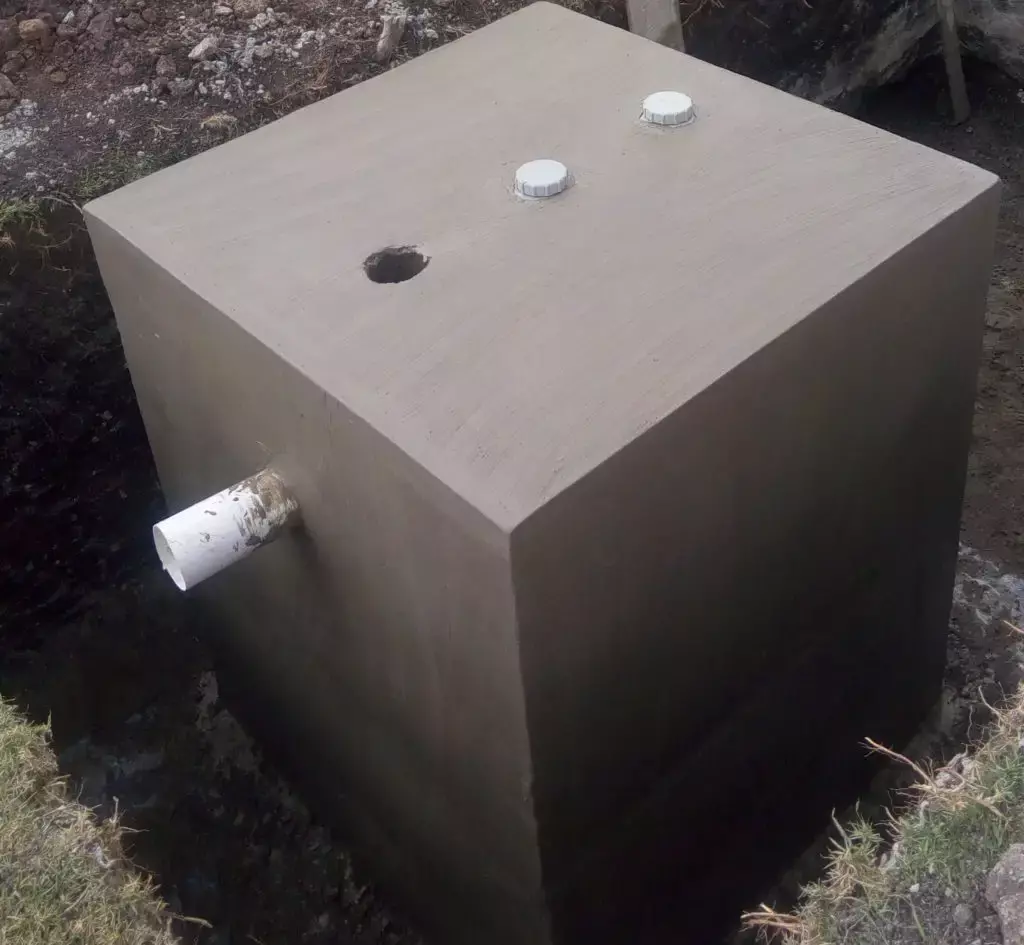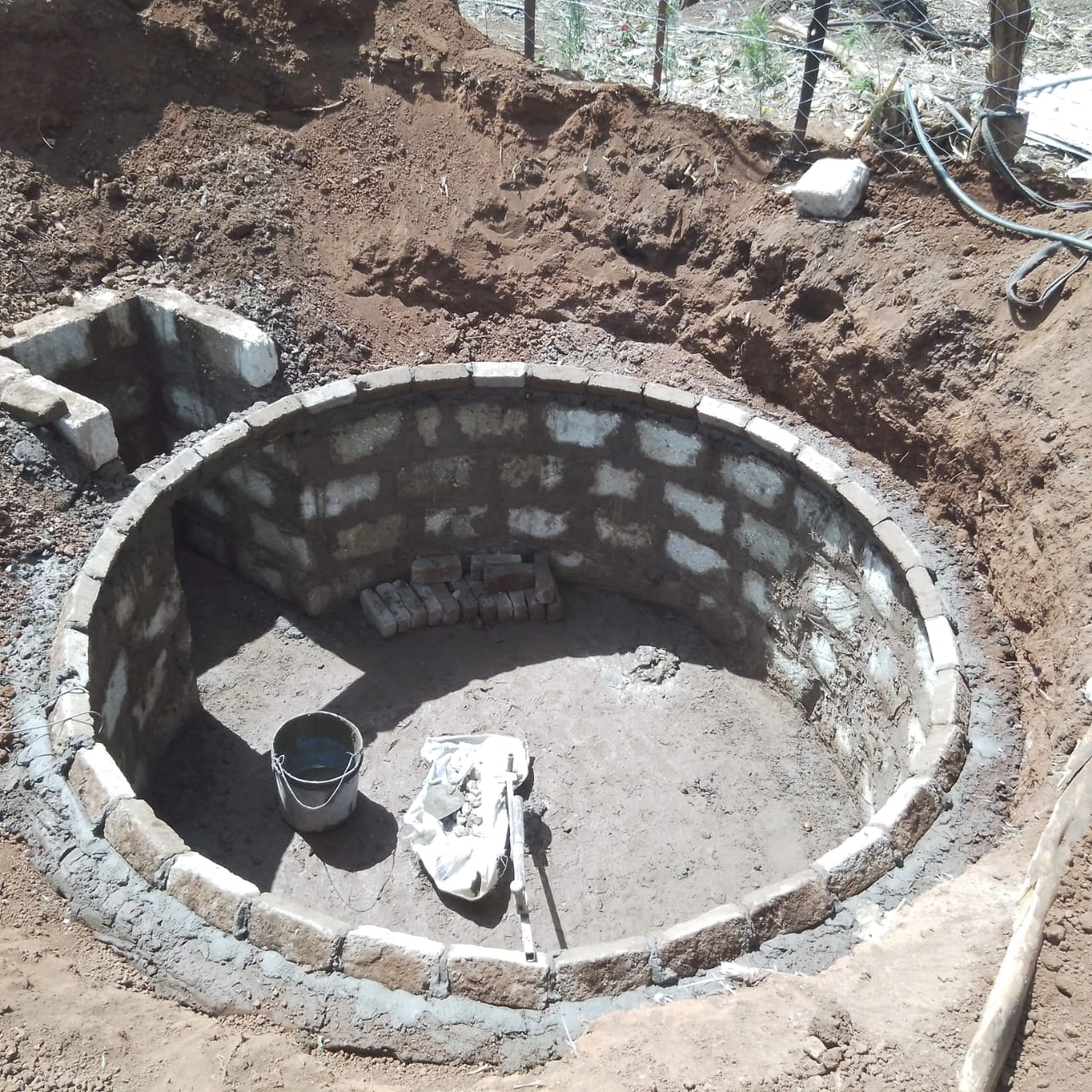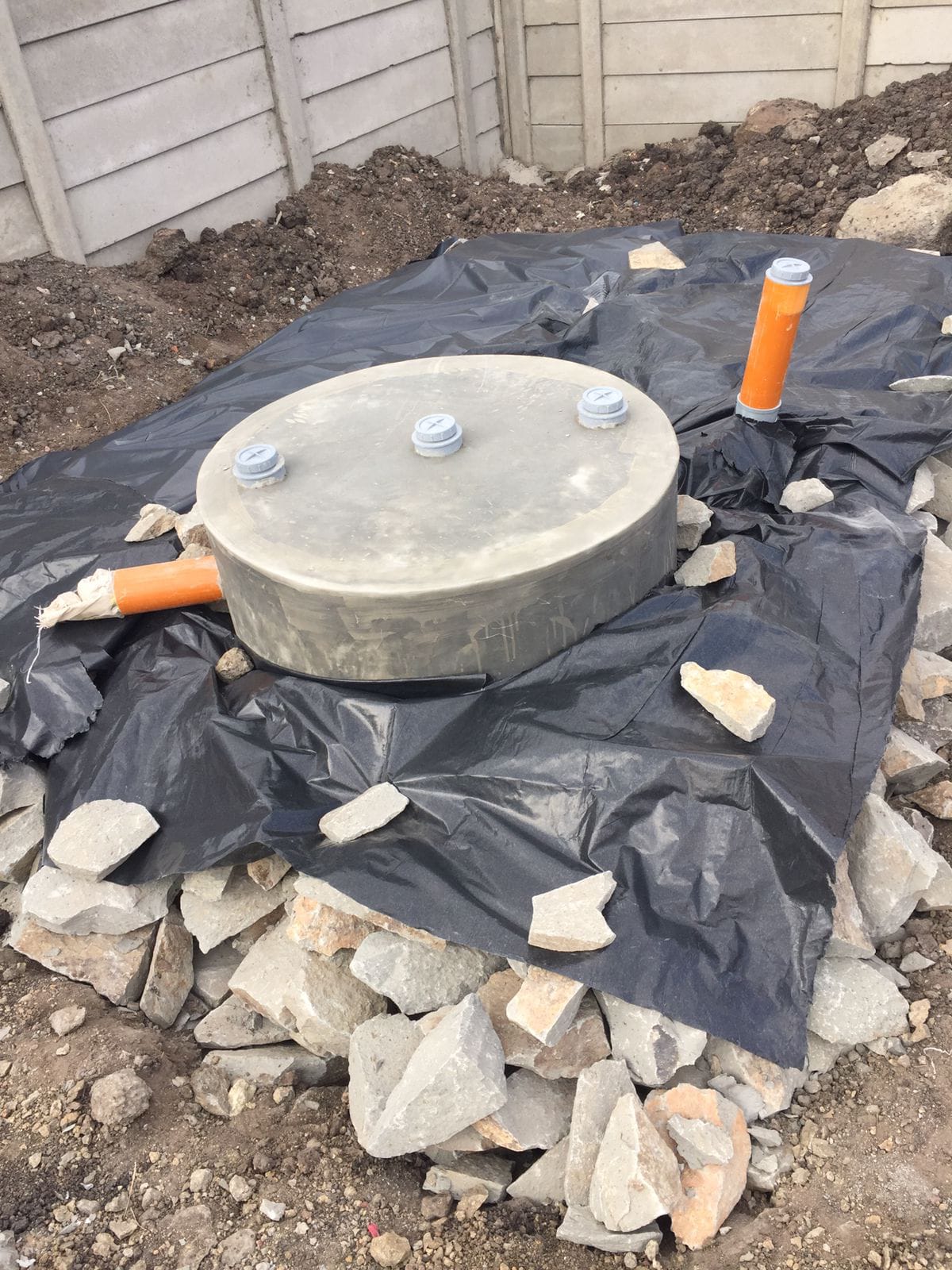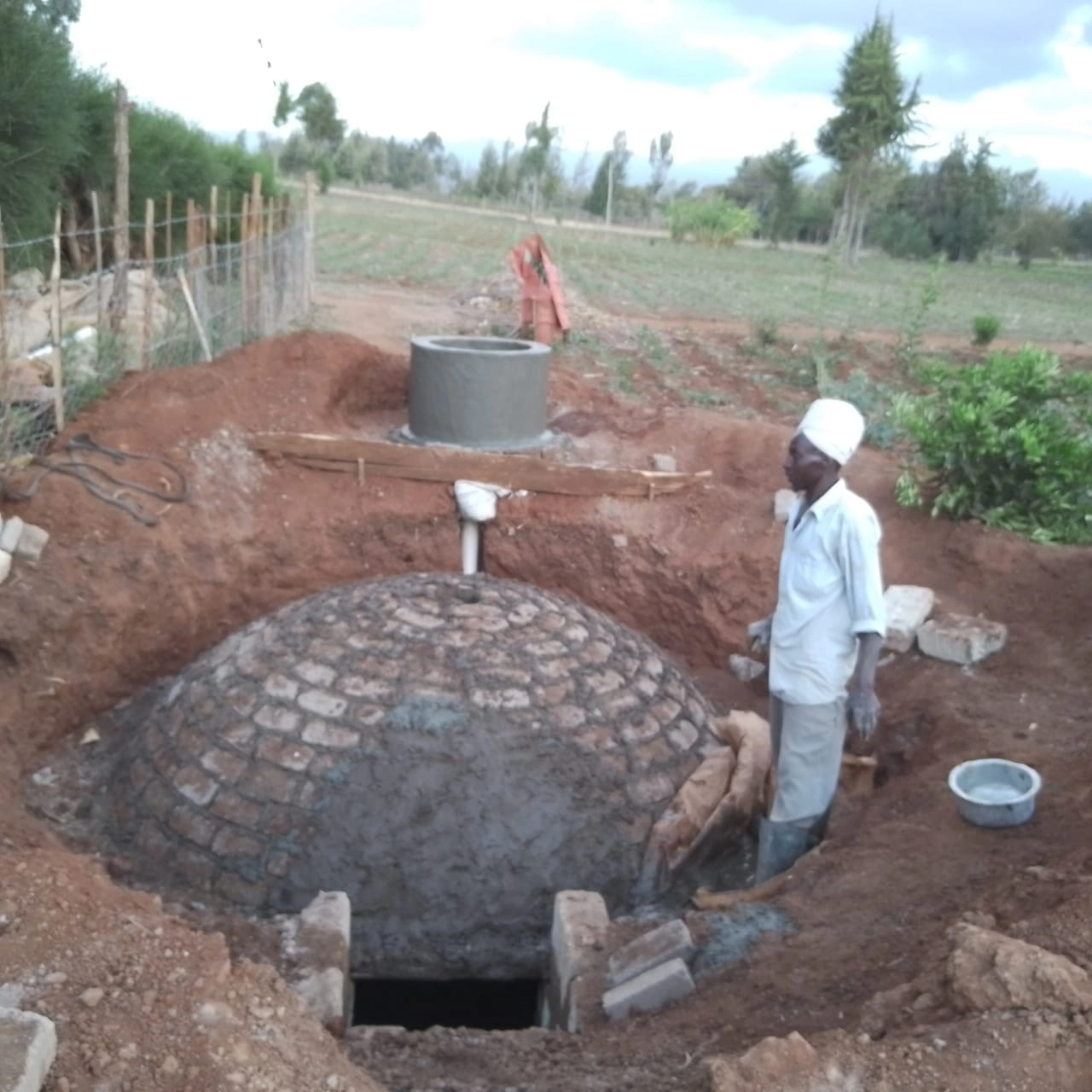Discover why biodigester enzymes are the best choice for maintaining your biodigester.
Learn about the different chemicals available and why Bio Digester Kenya recommends enzymes for long-term efficiency and environmental sustainability.

When it comes to maintaining your biodigester, choosing the right chemical is crucial to ensuring its long-term effectiveness and environmental sustainability.
In Kenya, many homeowners and businesses are switching to biodigesters as an eco-friendly waste management solution.
But with so many options available, the question arises: Which chemical is the best for your biodigester?
This article will break down the various options and help you understand why biodigester enzymes are the superior choice.
Why Chemicals Are Used in Biodigesters
Biodigesters rely on a delicate microbial ecosystem to break down human waste into harmless byproducts like water and air.
The right chemicals help this process run smoothly, ensuring that waste is efficiently decomposed.
Without the right chemical support, your biodigester may face issues like blockages, foul odors, or inefficient waste breakdown.
Importance of Maintaining a Healthy Microbial Balance
The key to a well-functioning biodigester is a balanced microbial environment.
The bacteria and enzymes present in the system naturally digest waste.
Adding the right chemicals can enhance this process, making the system more effective and reducing the need for maintenance.
Role of Chemicals in the Waste Breakdown Process
Some chemicals promote the growth of beneficial bacteria, speeding up the breakdown of solid waste and preventing blockages.
The wrong chemicals, however, can kill these microorganisms, leading to system failure.
Types of Chemicals for Biodigesters
Biodigester Enzymes
Biodigester enzymes are the top choice for maintaining the health of your system.
These enzymes are specifically designed to boost microbial activity, ensuring a faster and more efficient breakdown of waste.
Unlike harsh chemicals, enzymes are safe for the microbial ecosystem within the biodigester.
Organic vs. Inorganic Chemicals
Organic chemicals can be a viable option but often come with limitations.
Inorganic chemicals, on the other hand, can disrupt the balance in your biodigester, resulting in long-term damage.
Common Household Chemicals: A Word of Caution
Using common household cleaners like bleach or disinfectants may seem like a quick fix, but they can destroy the beneficial bacteria in your biodigester.
This can cause the system to malfunction and result in costly repairs or replacements.
Why Biodigester Enzymes Are the Best Choice
Safe and Natural
Biodigester enzymes are safe for both the environment and the system itself.
They do not harm the microbial ecosystem that is essential for waste breakdown.
Effective Waste Breakdown
These enzymes enhance the natural decomposition process, ensuring that your system remains free from blockages and operates efficiently.
Odor Control and Improved System Efficiency
Biodigester enzymes help manage odors by accelerating the breakdown of waste.
This not only keeps the system running smoothly but also ensures your environment remains fresh.
How Biodigester Enzymes Work
The Dangers of Using Household Chemicals
Many people think using bleach or other household cleaners is a simple solution, but these products can actually harm your biodigester.
Harsh chemicals kill the beneficial bacteria needed for effective waste breakdown, potentially leading to system failure.
Organic and Inorganic Chemicals: Are They Worth It?
Some biodigester owners opt for organic or inorganic chemicals, but these may not be as effective or safe as enzymes.
Organic chemicals can sometimes disrupt the microbial balance, while inorganic options often introduce harsh elements that harm the system over time.
Comparing Biodigester Enzymes to Other Chemical Options
When compared to other chemical options, biodigester enzymes stand out for their cost-effectiveness, longevity, and environmental benefits.
Enzymes are more affordable in the long run because they prevent blockages and reduce the need for costly repairs.
How to Use Biodigester Enzymes Correctly
Dosage Guidelines Based on Biodigester Size
The effectiveness of biodigester enzymes depends on proper usage.
Always follow the recommended dosage based on your biodigester’s size to ensure the enzymes work as intended.
Frequency of Application
Typically, enzymes should be added every few months, depending on the size of the biodigester and the amount of waste it processes.
Regular enzyme treatment ensures the system runs at peak efficiency.
Why Bio Digester Kenya Recommends Enzymes
At Bio Digester Kenya, we specialize in designing and installing biodigesters for residential and commercial spaces.
We recommend biodigester enzymes because they offer the most effective solution for maintaining your system’s health and performance.
Our products are designed to meet the specific needs of Kenyan households and businesses.
Common Mistakes to Avoid When Using Biodigester Enzymes
Avoid common pitfalls like overdosing or underdosing the enzymes.
Always use the recommended amount to prevent system imbalance.
Additionally, do not mix enzymes with other chemicals, as this can reduce their effectiveness.
Signs Your Biodigester Needs Enzyme Treatment
If you notice foul odors, slow waste breakdown, or wastewater overflow, these could be signs that your system needs enzyme treatment.
Addressing these issues early can save you from costly repairs down the line.
Environmental Benefits of Using Biodigester Enzymes
Enzymes are environmentally friendly, as they reduce sludge production and minimize the risk of groundwater contamination.
This makes them the most sustainable choice for waste management.
Why You Should Buy Biodigester Enzymes from Bio Digester Kenya
Bio Digester Kenya offers top-quality biodigester enzymes specifically designed for Kenyan conditions.
Our products are affordable, effective, and backed by our expert installation and maintenance services.
Conclusion: Choosing the Right Chemical for Your Biodigester
Choosing the right chemical for your biodigester is crucial for ensuring long-term performance and environmental safety.
Biodigester enzymes are the safest, most effective option, and when used correctly, they can keep your system running smoothly for years to come.
FAQs About Biodigester Chemicals
How often should I add enzymes to my biodigester? Enzymes should typically be added every three to six months, depending on usage.
Can I use regular household chemicals with a biodigester No, household chemicals like bleach and disinfectants can harm the microbial balance in your system.
What happens if I use too many enzymes in my biodigester Overdosing on enzymes can upset the system’s balance, but it is generally not as harmful as using harsh chemicals.
How long does it take for enzymes to work in a biodigester Enzymes typically start working within a few days, promoting efficient waste breakdown.
Are biodigester enzymes safe for the environment? Yes, biodigester enzymes are environmentally friendly and help reduce pollution.
